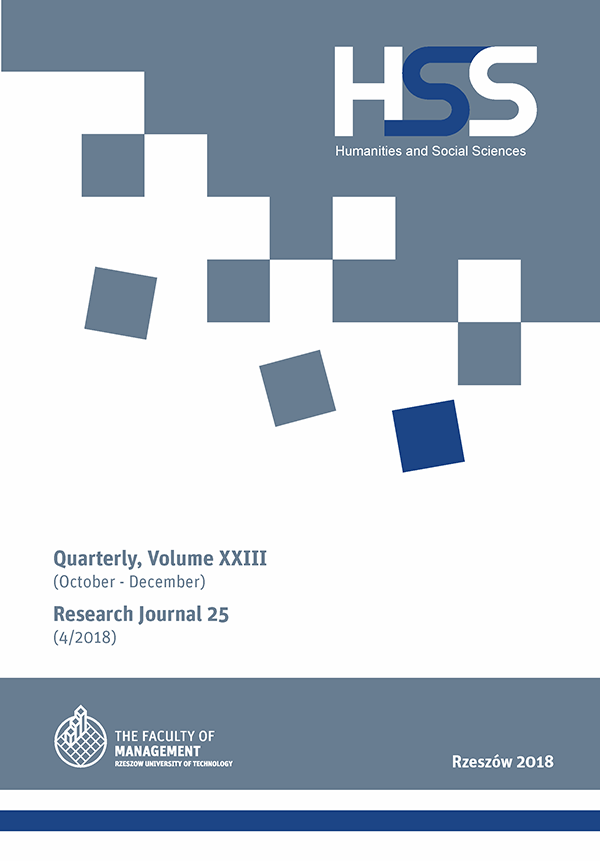Abstract
Teams of police negotiators, who are summoned when there is a crisis situation, are very important in the police tactics. Their task is to establish verbal communication with the perpetrator of a crisis situation and to bring about a peaceful solution to the problem. It can therefore be assumed that the aim of the negotiations is to make the perpetrators or the perpetrator surrender, and in a situation where there is a real threat to the lives of people participating in a crisis situation to “buy time” to prepare the best opportunity for another tactical solution (e.g.: an assault). Police negotiations are treated as an alternative to enforcement solutions of crisis situations, such as the police forces’ storm without reconnaissance, police forces’ storm after reconnaissance or using snipers. The first full-time negotiation section in Poland was established in 1992. Two years later, it was assumed that sections of police negotiators would be created in each province. Currently, full-time negotiators serve in the Negotiation Section of the Operational Support Department of the Anti-Terrorist Operations Bureau of the General Police Headquarters of Poland, while non-permanent negotiation teams operate in each provincial headquarters and in the Warsaw Metropolitan Police Headquarters.
References
Biel D., Badania sytuacji kryzysowych/policyjnych. Wstęp do dyskusji [in:] Komunikacja w sytuacjach kryzysowych III, ed. J. Stawnicka, D. White, Katowice 2011.
Bowen E., Brown S.J., Grubb A.R., Hall P., From “Sad People on Bridges” To “Kidnap and Extortion”: Understanding the Nature and Situational Characteristics of Hostage and Crisis Negotiator Deployments, “Negotiation and Conflict Management Research” May 2018.
Greenstone J.L., Leviton S.C., Interwencja kryzysowa, Gdańsk 2004.
Greenstone J.L., The Elements of Police Hostage and Crisis Negotiations: Critical Incidents and How to Respond to Them, London and New York 2008.
Grubb A.R., An Exploratory Mixed-Methodological Analysis of Police Hostage and Crisis Negotiation in the United Kingdom, Coventry 2016.
Grubb A., Brown S., Hall P., Personality traits and coping styles in UK police officers. Do negotiators differ from their non-negotiator colleagues?, “Psychology, Crime and Law”, Vol. 21(4) 2015.
Hanausek T, Kryminalistyka, Kraków 2005.
Jałoszyński K., Niestandardowe negocjacje policyjne [in:] Komunikacja w sytuacjach kryzysowych III, ed. J. Stawnicka, Katowice 2012.
Kelln B., McMurtry C.M., STEPS–Structured Tactical Engagement Process A Model for Crisis Negotiation, “Journal of Police Crisis Negotiations”, Vol. 7 2007, 29–51.
Lis-Turlejska M., Traumatyczne zdarzenia i ich skutki psychiczne, Warszawa 2005.
Loranty D., Zasady prowadzenia negocjacji ze sprawcami zamachów terrorystycznych [in:] Współczesne zagrożenia terroryzmem oraz metody działań antyterrorystycznych, ed. J. Szafrański, Szczytno 2007.
Macmains M.J., Mullins W.C., Crisis Negotiations. Managing Critical Incidents and Hostage Situations in Law Enforcement and Corrections, London and New York 2015.
Pearce K., Police negotiations. A new role for the community psychiatrist, “Canadian Psychiatric Association Journal”, 1977 Jun;22(4).
Piotrowicz D., Negocjacje kryzysowe i policyjne. Wybrane zagadnienia psychologiczne oraz kryminologiczne, Warszawa 2010.
Piotrowicz D., Negocjacje kryzysowe w policyjnym systemie interwencyjnym. Bezpieczeństwo Mistrzostw Europy w piłce nożnej Euro 2012, ed. K. Liedel, P. Piasecka, Warszawa 2011.
Po pierwsze człowiek, „Policja 997”, Issue 148/07.2017
Rubio A., Perceived outcomes of Swat Negotiations with a Police Psychologist on the Crisis Negotiations Team, Dissertation Submitted to the Faculty of the California School of Forensic Studies, Los Angeles 2015.
Slatkin A., Crisis Negotiation for Law, Enforcement, Corrections and Emergency Services. Crisis Intervention as Crisis Negotiations, Springfield 2015.
Stawnicka J., Uwarunkowania prawno-organizacyjne prowadzenia negocjacji policyjnych [in:] Komunikacja w sytuacjach kryzysowych III, ed. J. Stawnicka, Katowice 2012.
Stępiński M., Działalność Biura Operacji Antyterrorystycznych Komendy Głównej Policji w 2013 r., „Kwartalnik Policyjny”, Issue 1/2014.
Stępiński M., Negocjacje policyjne. Narzędzie alternatywnego rozwiązania sytuacji kryzysowej, „Kwartalnik Policyjny”, Issue 1/2014.
Wieczorek A., Negocjator w cieniu akcji,www.police.pl.
Żółtowski J., Funkcjonowanie systemu negocjacji policyjnych w Polsce [in:] Służby i formacje mundurowe w systemie bezpieczeństwa wewnętrznego Rzeczypospolitej Polskiej, ed. E. Ura, S. Pieprzny, Rzeszów 2010.

